Sole Proprietorship
Sole Proprietorship
- On call Discussion on Business Model.
- Application Submission
- Commencement of Business.
- MSME Registration
- GST Registration
- On call Discussion on Business Model.
- Application Submission
- Commencement of Business.
- MSME Registration
- GST Registration
Sole Proprietorship Registration - An Overview
As we know, India is one of those countries which is full of people who are managing and operating their business by choosing Sole Proprietorship as their business structure. Moreover, this business model requires compliance with very few legal formalities and is suitable for the people who do not have adequate capital. Further, sole proprietorship registration is required for the businesses which are owned, managed, and controlled by a single individual, as it will eventually help them in carrying out business operations with ease and flexibility.
Nowadays, the Sole Proprietorship as a business model is mostly chosen by the micro and small enterprises with less investment, operating in the unorganized sector. Moreover, it is also ideal for the embryonic entrepreneurs who want to start their own business. Lastly, some of the examples of a sole proprietorship are salons, grocery stores, chemist shops, photo studios, etc.
Documents Required
Proprietor's Document
- PAN Card of Proprietor
- Aadhaar of Proprietor
- Passport-sized photograph
- Specimen Signature
Registered Office Document
- Latest Water Bill / Telephone Bill / Electricity or Gas Bill
- Notarized Rental Agreement in English
- No-Objection Certificate from the property owner
- Sale Deed/ Property Deed/ RoR copy in English (if owned property)
PROCESS
- Choose a Name for Sole Proprietorship.
- File an Application for the Registration.
- Submission of the Documents.
- Certificate of Registration issue
POST REGISTRATION
- GST Registration for Sole Proprietorship.
- Open Bank Account within 30 Days of Registration
Benefits of Sole Proprietorship Registration

A single person can easily start a Sole Proprietorship Firm.
Owner of the Sole Proprietorship Firm is considered to own boss. This means he is not answerable and accountable to any shareholder and director
For the Sole Proprietorship Firm Registration, there is no such minimum limit prescribed for the capital requirement as it depends upon the sole owner and his will.
Proprietorship firms are considered as one of the easiest and simplest business structures to form. This means one people can establish a Proprietorship Firm.
A Sole Proprietor having an income of less than Rs 2 lakhs is not supposed to pay the income tax.
Sole Proprietorship firm has the minimum compliance requirement
Sole Proprietor has Decision Making Power. So he/ she can run his/ her business in single hand control.
Why BizOkay India?


Frequently Asked Questions
Yes, it is mandatory for the owner of the proprietorship firm to obtain GST Registration in cases, such as the annual turnover exceeds the prescribed threshold of Rs 40 lakhs and Rs 20 lakhs; Reverse Charge Mechanism; Agents and Input Service Distributor; E-commerce Aggregator; for providing information, database and retrieval services to the person residing outside India.
Yes, a sole proprietor has the authority to appoint an employee. Further, no upper limit is prescribed on the maximum number of employees that a sole owner can appoint.
A Sole Proprietor being the business owner has complete control and authority over the business operations and is entitled to receive all the profits and gains. However, he is also liable to bear all losses incurred in the business.
The owner of the business needs to satisfy some compliance after obtaining a Sole Proprietorship Firm Registration. The term compliance includes TDS Return Filing; ITR Filing; GST Return Filing; Drafting of Financial Statements; Tax Audit; Documentation of Invoices for sale and purchase.
In India, a sole proprietor can start multiple numbers of Sole Proprietorship businesses under his name.
No, a sole owner is not entitled to pay a salary to himself. However, if he does so, it means he/she is transferring funds from one account to another.
Yes, one can use his/her name as the name of the business.
A Sole Proprietorship Business ceases to exist after the death of the sole proprietor. Further, all the assets and liabilities of the business become part of the deceased’s estate.
Yes, one can convert a sole proprietorship firm into a private limited company by registering it to the Registrar of Companies within thirty days after making an application. All the assets of the sole proprietorship firm will be transferred to the newly incorporated private company.
